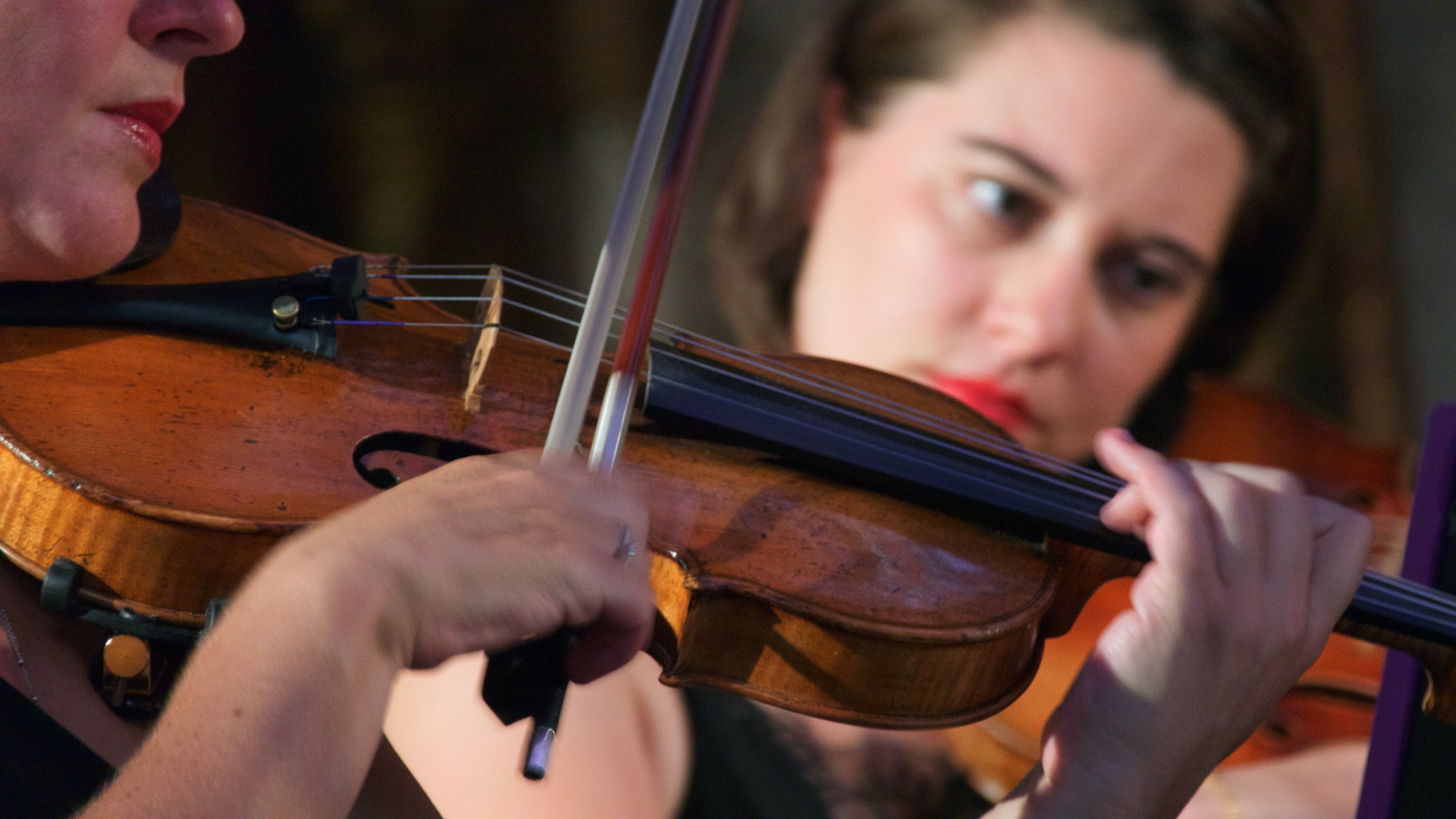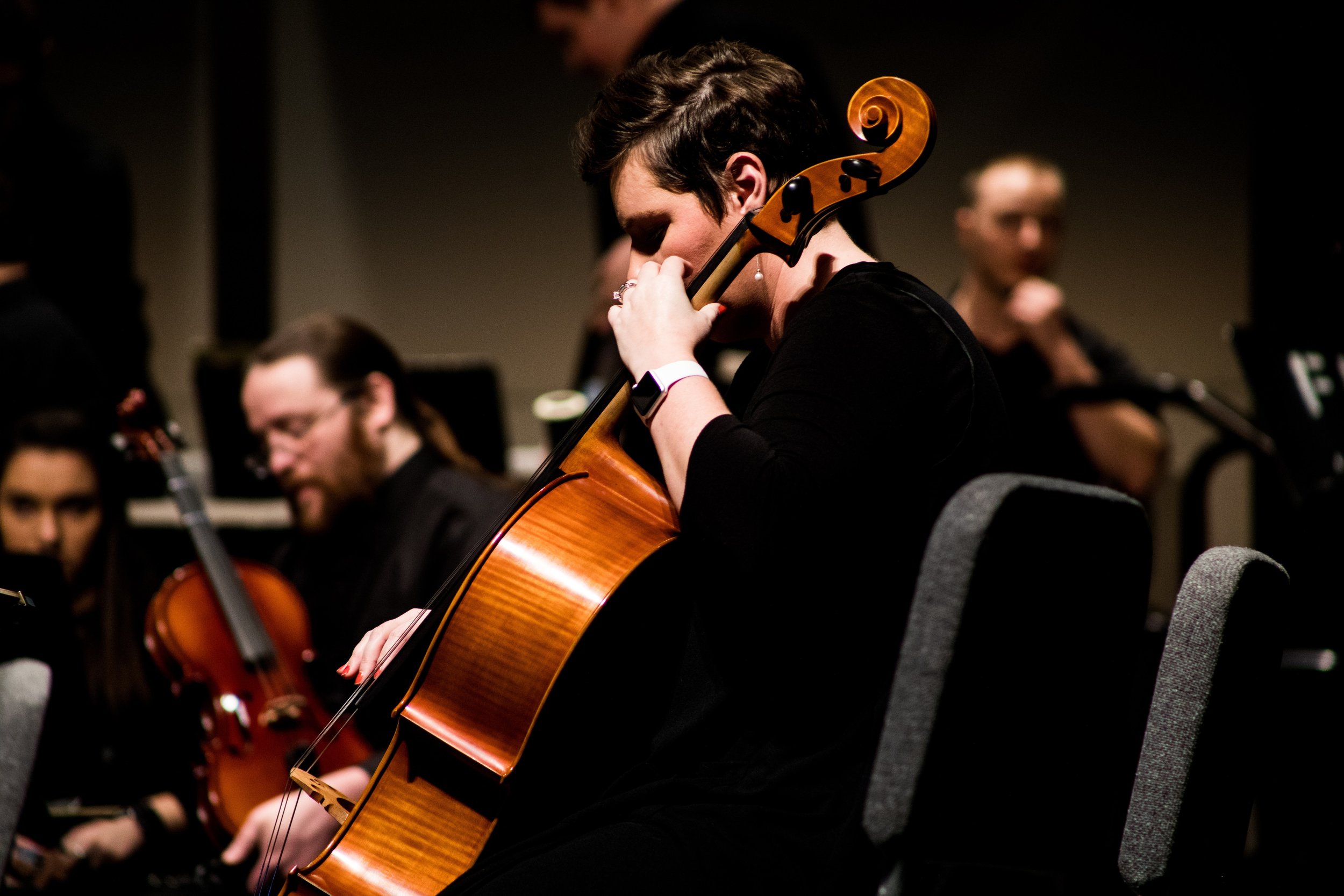The Experiments
What is the relationship between music and empathy?
Musicians who make music as a group strive to play ‘in sync’: to connect with each other so that they can connect with the audience. Some people call this ‘groove’ and argue that it’s one of the most important features of effective music. Without groove, a performance feels static and leaves the audience emotionally flat. Many musicians make the endless sacrifices that a music career demands because, at some point in their development, they experienced that magical feeling of making music with others. Not every performance includes these moments of complete synchrony, but achieving synchrony through music is the goal of the vast majority of ensembles. There is nothing like that feeling. Even if just for a fleeting moment, the ensemble of individual artists breathes like one animal and music pours out that transcends any single musician. Audiences feel this connection immediately and demand more. This connection may be largely based on feelings of empathy.
Several recent neuroimaging studies of individuals listening to and enjoying music have shown that a specific network of brain regions is activated by this pleasurable activity: the mirror neuron system, which underlies our ability to empathize with others.
The mirror neuron system was first discovered in the frontal cortex of monkeys, who while observing the behavior of other monkeys, showed similar activity in their own brains. Neuroscientists recording from single neurons in the regions involved in sensing and controlling our bodies noted that when a monkey watched another monkey perform a particular action, the part of the brain that would be active if that monkey were doing the task himself was activated. That is, the monkey’s brain was mirroring the action that he was observing by mimicking the neural firing patterns involved in performing the action. This mirroring, however, only occurred when the observing monkey knew the intention of his acting colleague. If the acting monkey was grasping a cup with the intention of drinking from it, the mirror neurons in the observing monkey would fire. If the grasping action was demonstrated with no contextual information, the mirror neurons remained silent. Note that there has been a lot of hype about mirror neurons, much of which extends beyond the evidence, but here we’re talking about a network of regions in the brain that seem to mirror or mimic activity in the brain of the person being observed.
This mirror neuron system has been observed both directly and indirectly in humans and it might responsible for the development of a theory of mind in children. A theory of mind allows us to understand, recognize and predict the thoughts, beliefs and intentions of others. When we listen to music that moves us, activity in the mirror neuron network in our brains increases, along with activity in regions that are responsible for the experience of pleasure and reward. In particular, when musicians listen to other musicians play on their instrument, the activation in their brains is very similar to what we would see where the musicians actually playing.
Empathy involves putting oneself into the shoes of someone else; to literally feel what they are feeling. One argument for why music is effective in eliciting powerful emotions is that it taps into this empathic system directly. Without empathy, we have a greater capacity of be cruel to one another, and empathy for individuals in a persecuted group has been shown to be a way of easing tensions and diminishing hate.
On the internet, where anonymity reigns supreme, cruelty is rampant in comment streams, on blogs and various other social media outlets. A recent study of internet behavior demonstrated that when individuals are depersonalized, there is a greater tendency towards cruel actions. Specifically, the study asked individuals to interact through an online video chat platform and the experimenters manipulated conditions to increase or decrease personalization. Under one condition, the participants spoke to each other through regular video contact, making eye contact and seeing the entire face of the person with whom they were chatting. In a second condition, the face was displayed but a black bar obscured the eyes from view, eliminating eye contact. Another condition involved only auditory exchanges and a final condition obscured the face but left the eyes visible. Interestingly, cruelty was more prevalent in all conditions under which eye contact was not possible.
With this project, we are investigating how activating the mirror neuron system either directly or indirectly, generates more evocative and moving music from an ensemble of musicians playing together. This project involves two levels of analysis: 1) a controlled study of the effects of varying amounts of eye contact during playing on musicians and audiences and 2) a descriptive exploration of the role of empathy in music making.
In the controlled study, we varied the conditions under which the ensemble makes music. We are primarily interested in investigating three outcomes: 1) the extent to which the musicians themselves feel as though they are making music together, 2) the extent to which experts in music can sense the differences in playing conditions by listening to recordings, blinded to condition and 3) the extent to which the audience feels engaged under the two conditions.
For the exploratory component, we conducted surveys, collected diaries and made observations throughout the rehearsal, recording and performance processes to gain a deeper understanding of how effective music is made. These observations were made in a wide variety of settings, including at chamber music concerts in Trinity County, the poorest and most remote region in California, at rehearsals and performances by many Bay Area music groups, ranging from rock to opera, and at programs designed to teach children how to make music. The information derived from this project will be freely available on this website, and will include an interactive component that allows users to participate and share their thoughts.




